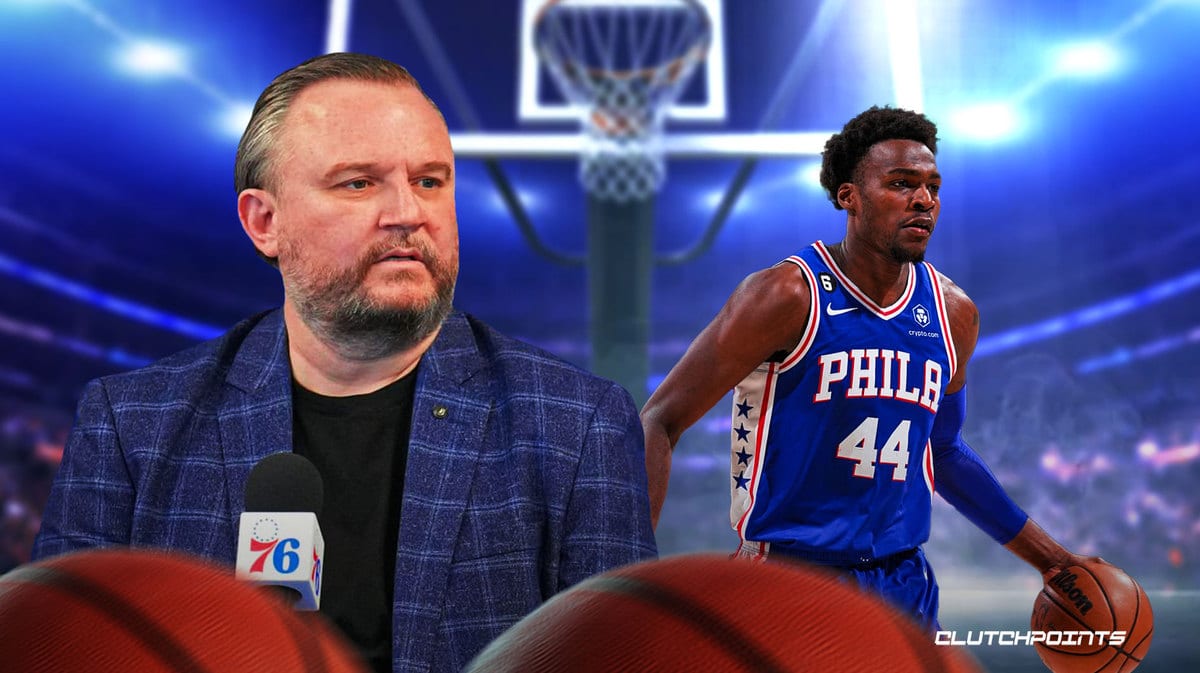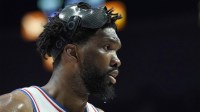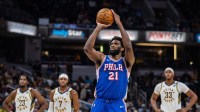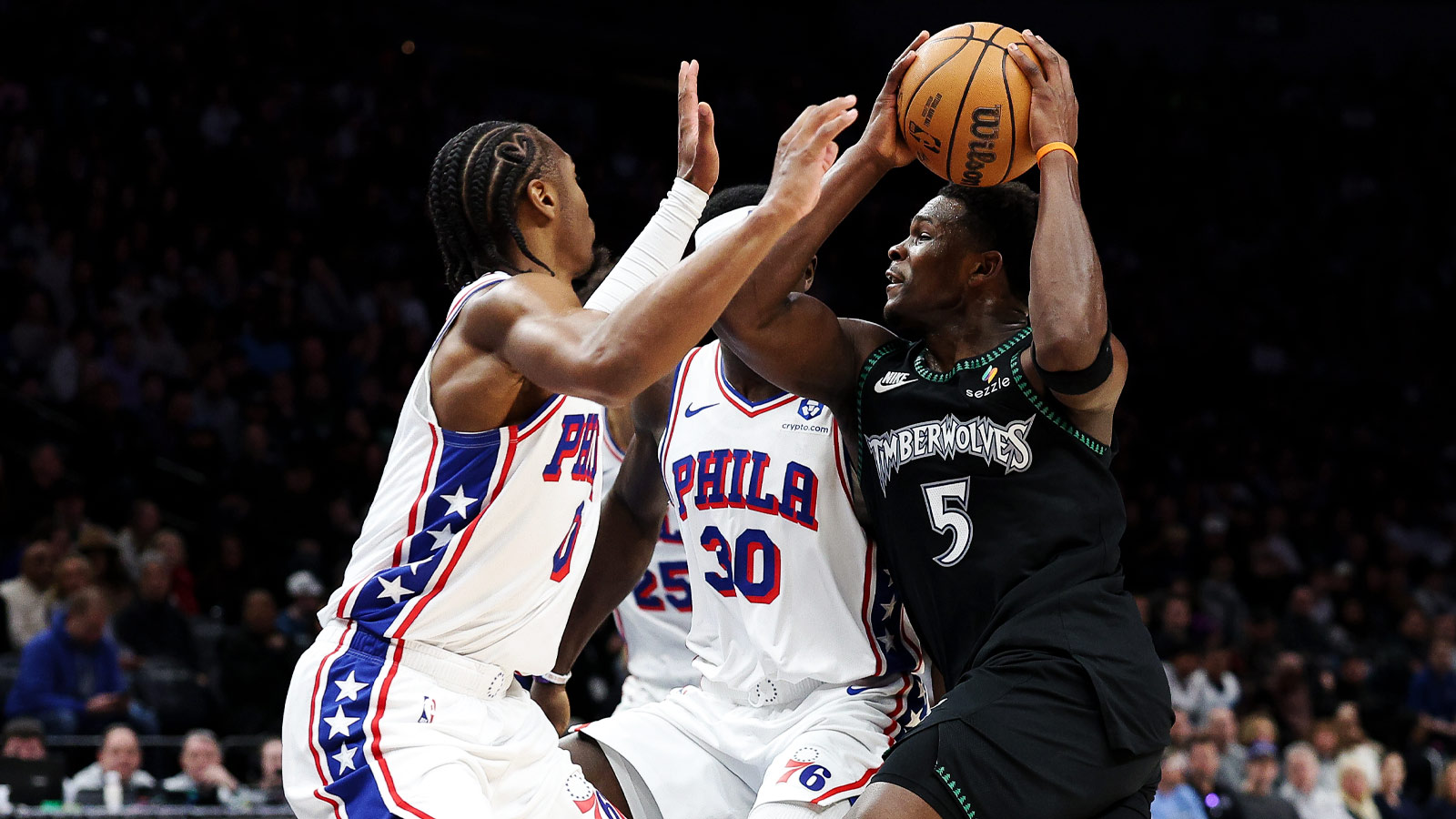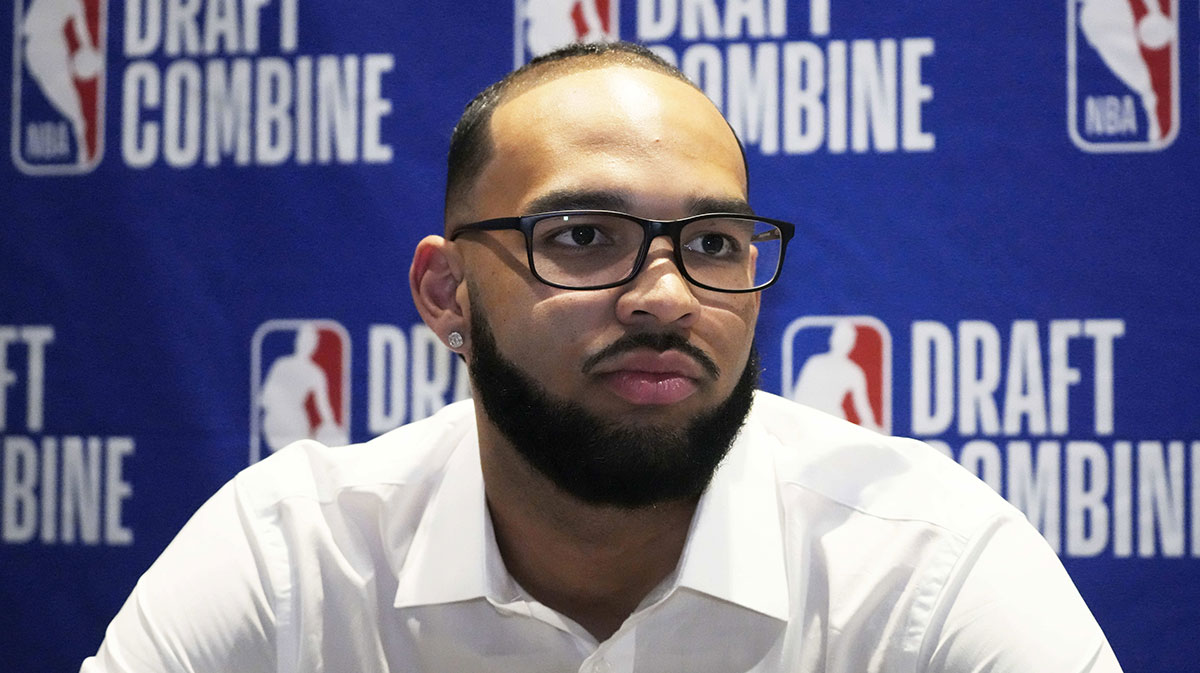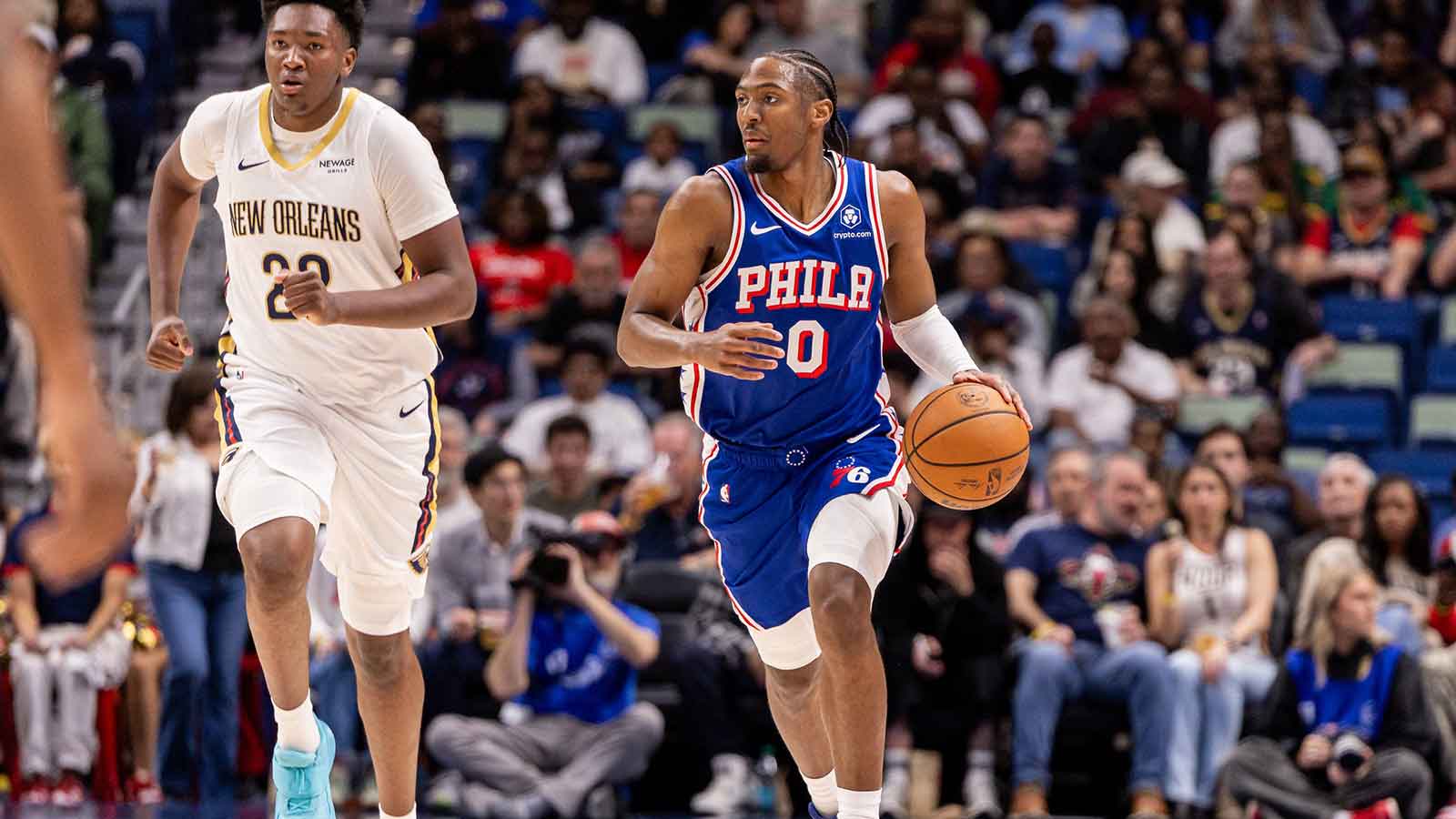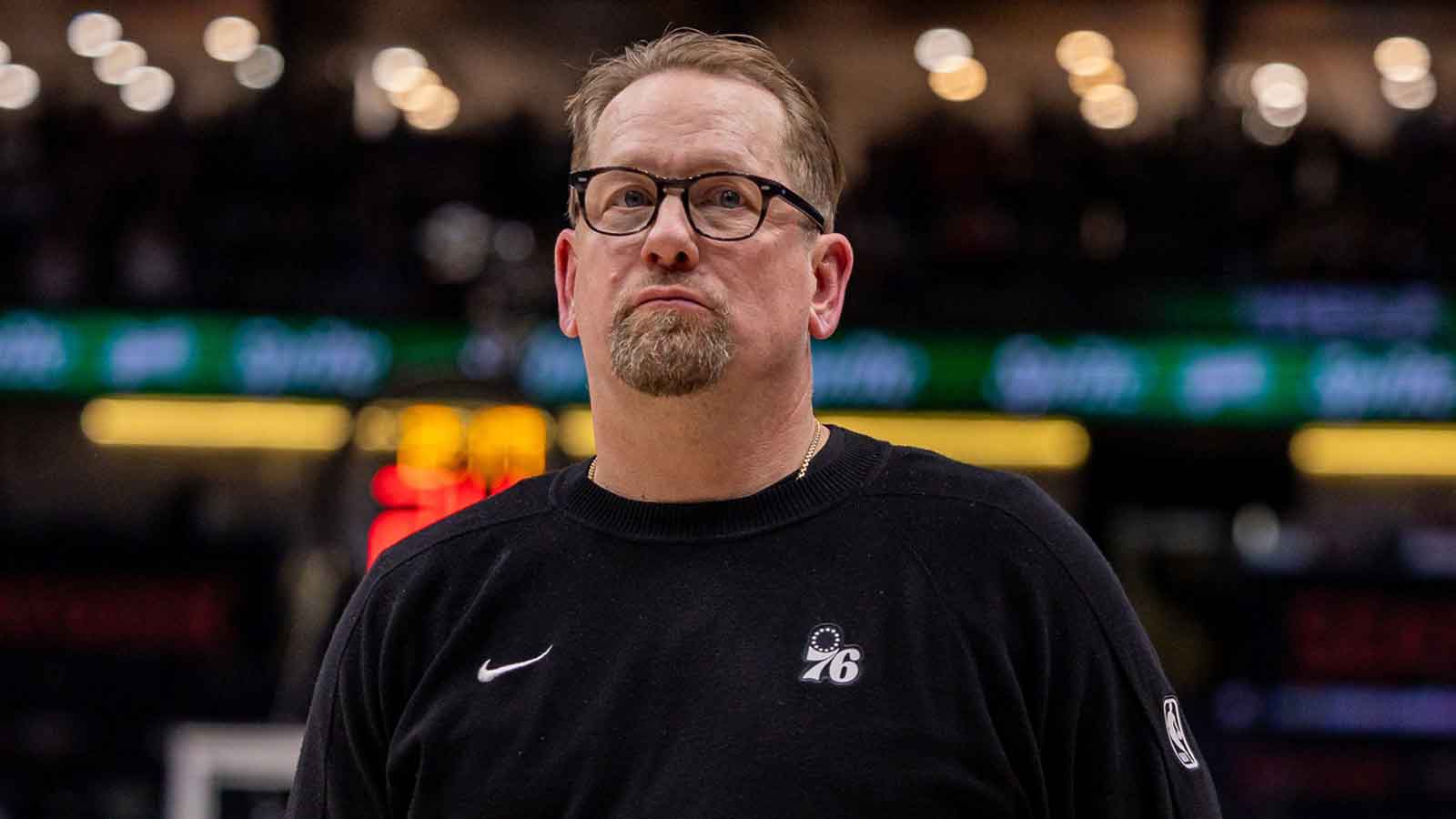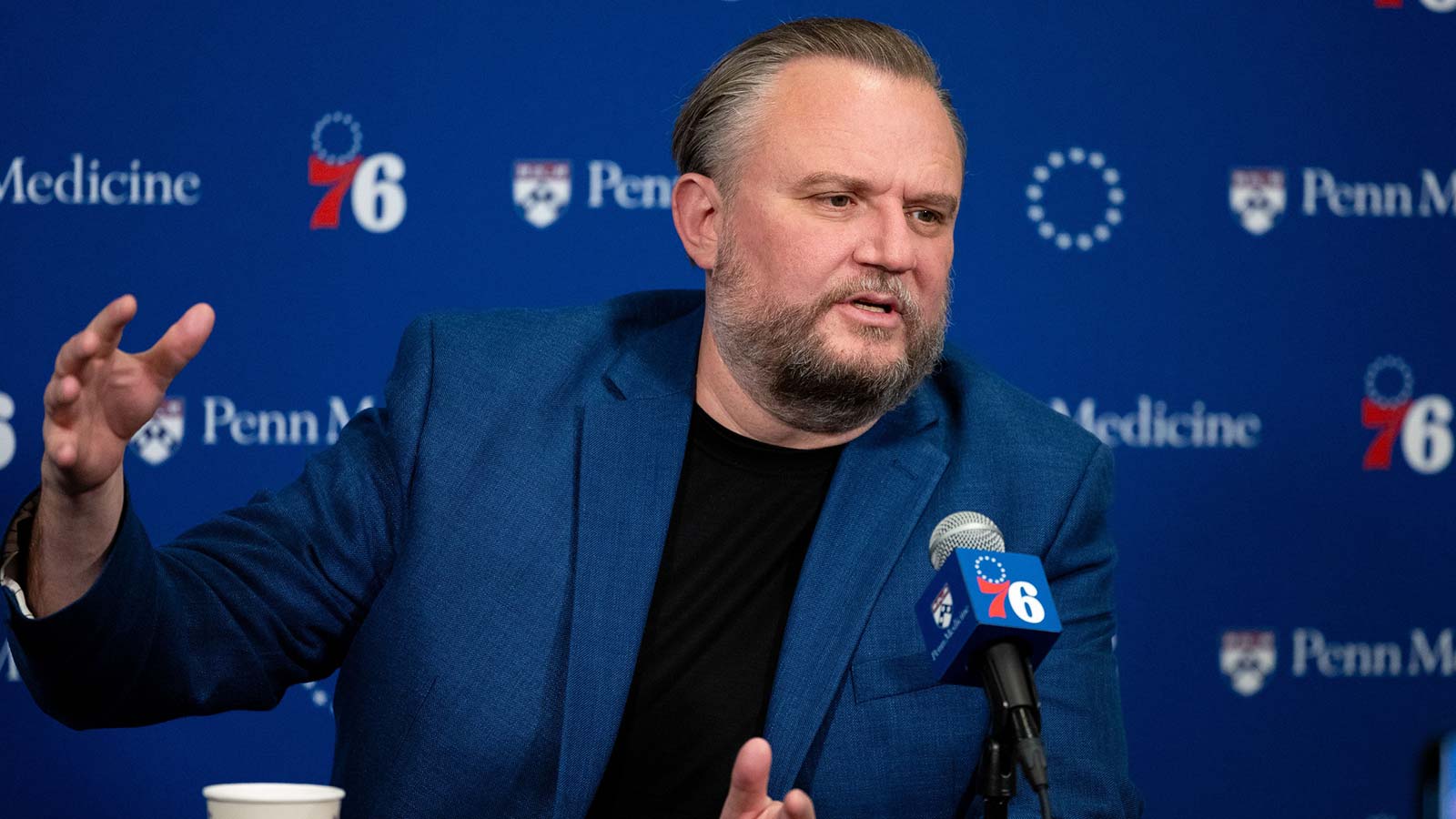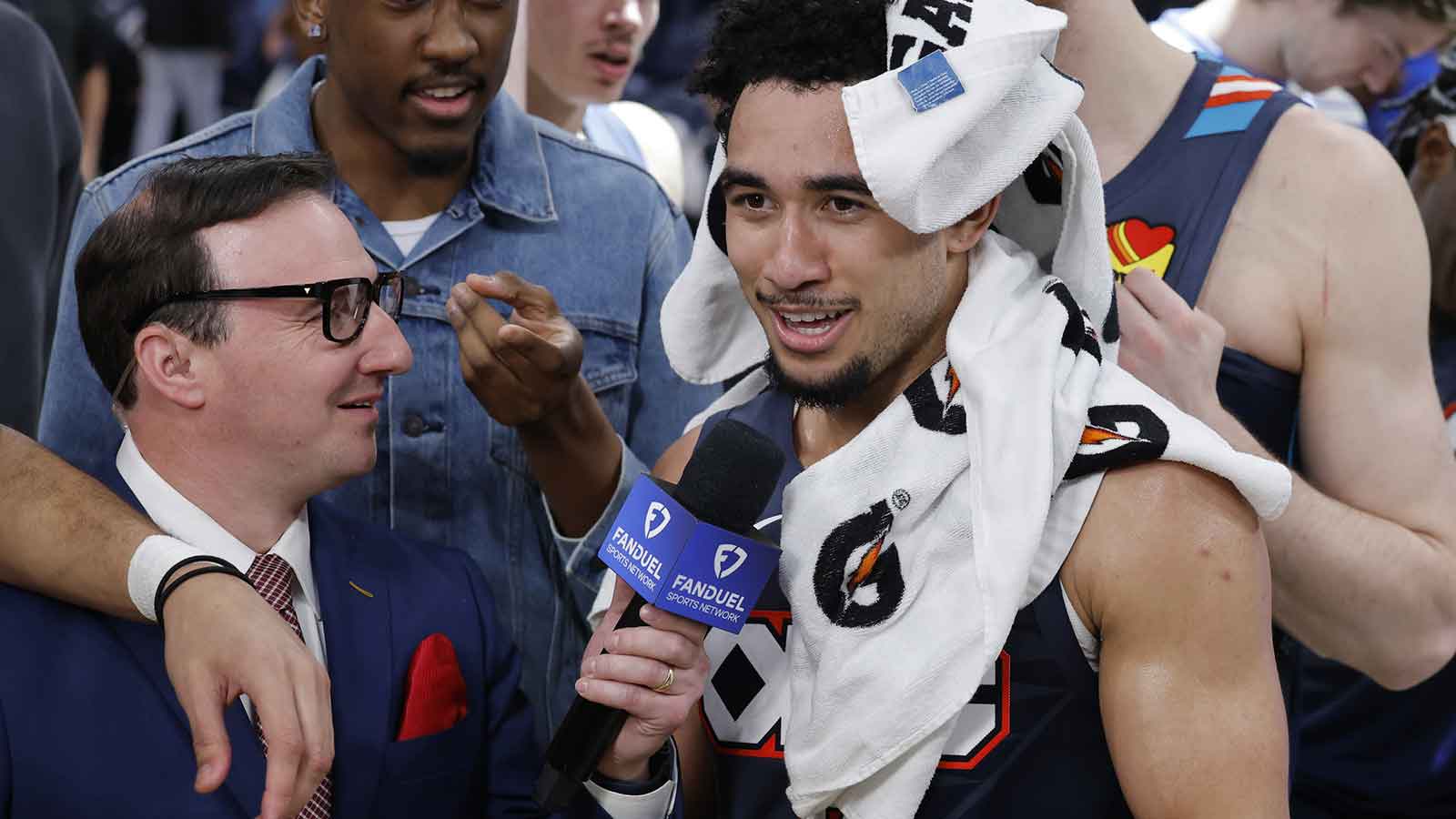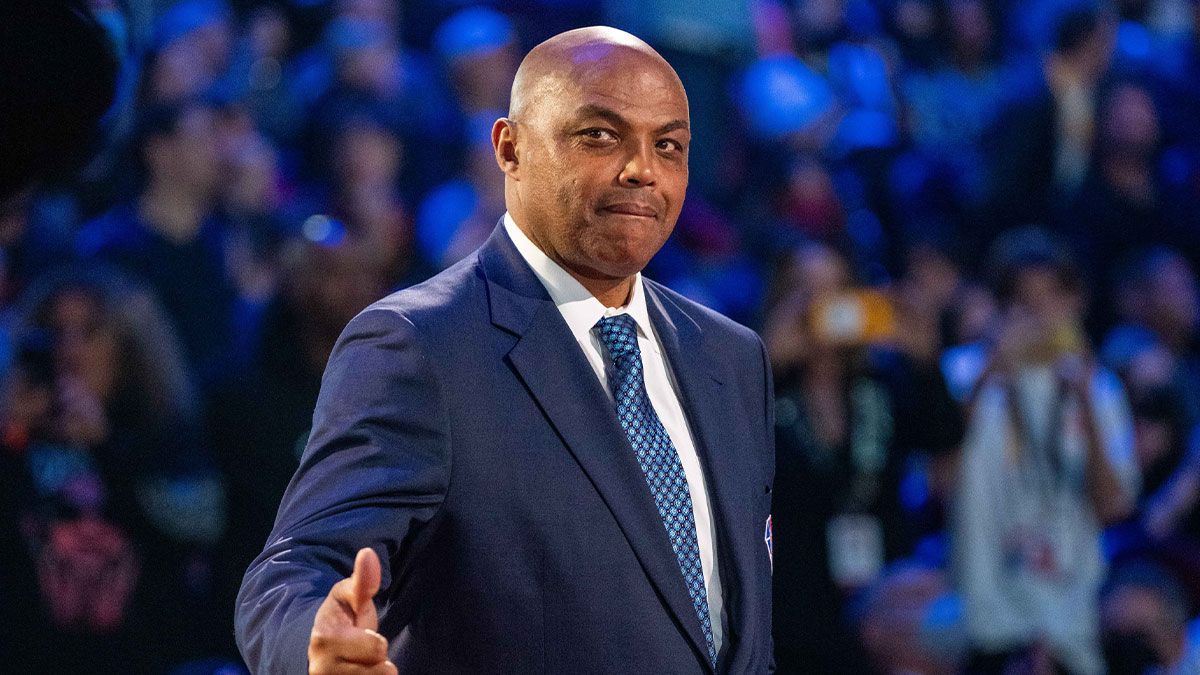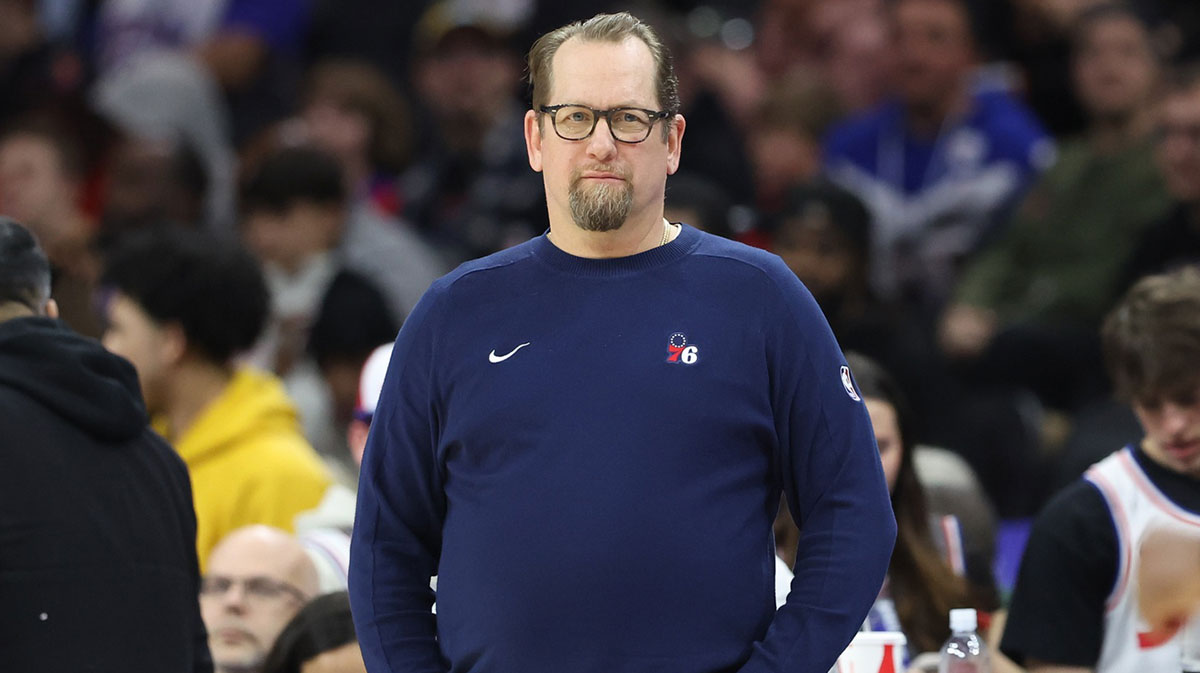At the trade deadline, the Philadelphia 76ers only made one trade, netting Jalen McDaniels and dealing Matisse Thybulle while exchanging one good second-round pick (the 34th selection in the 2023 NBA Draft) for a pair of future picks. The trade also put the Sixers below the luxury tax threshold, allowing them to dodge that tax as well as the repeat offender tax.
Given the dubious return, there was a lot of speculation that the primary reason the Sixers made that trade was just to save money. When he addressed the media about the Sixers' deadline activity, president of basketball operations Daryl Morey shot down that line of thinking by stating that they viewed McDaniels as a “hidden gem” and someone who can meaningfully contribute in the playoffs. But he also said that Philly took the tax aspect into consideration.
“I think as part of my job, I have to look at the bigger picture,” Morey said in February. “We have a lot of guys we're gonna re-sign and the moves we did both improve the team now and make it easier to keep this team together going forward.”
For a team with so many free agents, ducking the tax made sense — saving money will make it easier to pay up to retain key players. Cut to 2023 free agency and the Sixers have yet to sign a free agent that isn’t on a minimum deal (save for James Harden, who did the work himself by exercising his player option). Three key bench players — McDaniels, Georges Niang and Shake Milton — have all signed multi-year deals elsewhere. A fourth one may be gone soon, too, if the Sixers don’t act.
Paul Reed's Jazz offer sheet

Paul Reed, the backup center who proved to be a key player in the Sixers' rotation last season and is just 24 years old, signed an offer sheet with the Utah Jazz worth $23 million over three seasons. The Sixers can match the offer and keep him, giving them way more power than they did with their other free agents. Letting Reed go would be a colossal misstep that doesn’t align with the stated goal of being more frugal at the deadline in order to spend money in the offseason.
BBall Paul is a sound backup for Joel Embiid — the best he has ever had, bar none. He has familiarity with the Sixers, has developed each season and contributes in multiple ways on both sides of the ball. He's a hound for rebounds that shows versatility on both ends of the floor. Even if the vision of him playing as a roamer alongside Embiid doesn’t come to fruition, he helps the team function well when the MVP rests.
Fouling in bunches and the lack of shooting range (at least in the NBA) are legitimate flaws Reed can work on, but he checks off the main boxes that make for a good backup big man. A less important but still very tangible reason that the Sixers are better off keeping Reed is that Philadelphia absolutely loves him. He's the type of gritty role player the fan base often gravitates toward.
Reed had the freedom to peruse free agency but under the guise that the Sixers could match any offer he signs. Utah — despite already rostering an impressive young center in Walker Kessler and other centers/big forwards like Lauri Markkanen, Kelly Olynyk, John Collins and rookie Taylor Hendricks — is interested in bringing Reed into its rebuilding squad. Philly choosing to keep Reed would go against the ethos of their offseason to this point: maintaining future flexibility, namely with cap space.
Sixers' cap situation
The Sixers' prioritization of cap space can be seen numerous times in their offseason: keeping Tobias Harris' expiring contract instead of trading for players with longer deals, holding off on a Tyrese Maxey extension, only signing free agents on one-year minimums and letting the more pricey free agents leave despite having the cap exceptions to keep at least a few of them.
Morey and the front office keeping the Sixers' books as open as possible speaks to his big-picture focus. Having Reed on the books for the next three years does eat into flexibility and pushes the Sixers further into the tax, which they were already approaching anyway. The contract shouldn’t be hard to move given its length and annual worth of just under $8 million, but it would cut into the Sixers' future flexibility ever so slightly.
The Jazz, in a move that can be safely assumed to be partly a jab from former Boston Celtic/Utah lead executive Danny Ainge, trolled the Sixers HARD by including a clause that only guarantees the final two seasons of Reed's deal if the team he's on makes the conference semifinals in his first season. It's a move that all but ensures the Sixers will be on the hook for all three years but not Utah. Forcing the Sixers into a game of chicken is one of the most unique chapters in the Philly-Boston rivalry.
Opting not to orchestrate a sign-and-trade of some kind with Reed leaves the Sixers with only two options: match the Jazz's offer or don’t. Signs that point to a refusal to match Reed's deal include the current roster makeup, the cap space Philly would lose with Reed's deal and Morey's history of thriftiness when it comes to backup bigs.
Keep four centers?
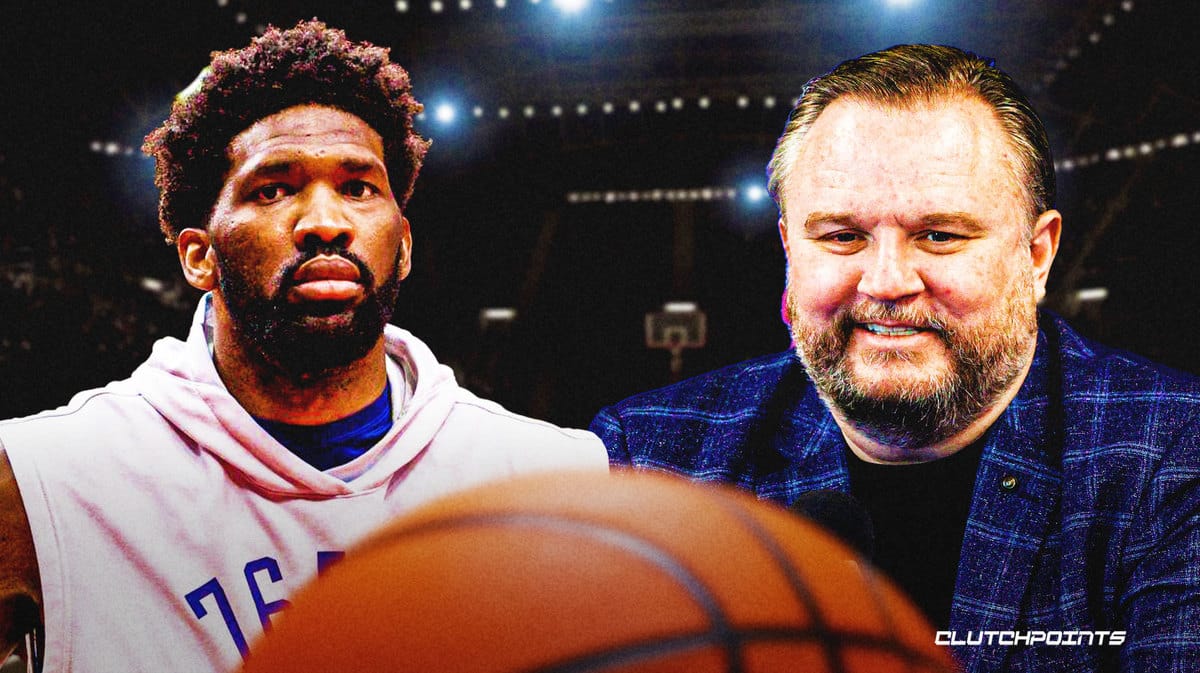
Morey previously said that the backup center is not his highest priority in team building. Over the years, he has stashed the position with a veteran on the cheapest contract possible. Keeping Reed would again leave the Sixers with three centers behind Embiid, joining Mo Bamba and Montrezl Harrell on the depth chart. Having that level of roster glut behind Embiid is tough to justify, especially given their need for wings.
The best solution was to simply not sign the first two guys before knowing Reed's decision, though that is easier said than done given Reed's desire to test the market. With hindsight, the right way to play this situation was to take the flyer on Bamba, whose length and three-point shooting offers a different set of skills, and move on from Harrell, whom Reed beat out in the rotation in the games that really mattered. Philly has backed itself into a corner and, through the point of view laid out by their offseason strategy to this point, losing another important player for nothing seems like the most logical way out.
Is Reed bound to improve in a way that drastically makes the Sixers' title chances better? No. Is it in the realm of possibility for Bamba to give Philly a similar production to Reed at a fraction of the price? Yes. But this is still an easy decision to make. It's only roughly $8 million for a young player who has proven to be valuable in the postseason and is one of the team's hardest workers.
Not matching the offer for Reed would allow one of the Sixers' key players to leave for nothing. Philly has bled value over the years by allowing good players, especially young ones, leave for nothing. Their eye for talent is legitimately good, but the follow-through on finding these diamonds in the rough, however small they may be, falls shorts far too often.
The buck has to stop with Paul Reed. Sacrificing a bit of future flexibility is worth keeping him on the roster.

